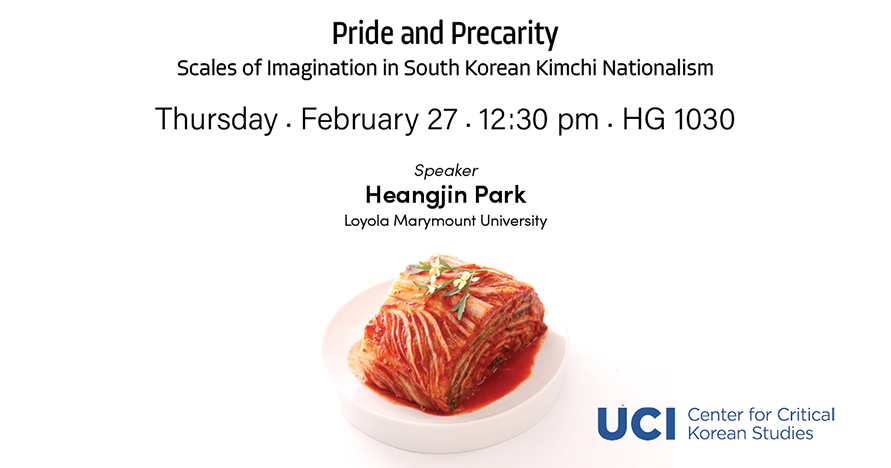
Pride and Precarity: Scales of Imagination in South Korean Kimchi Nationalism
Over the past four decades, kimchi has been celebrated and promoted globally as a proud cultural heritage of South Korea. At the same time, however, it has also been perceived as facing serious threats from neighboring countries, where the authenticity and marketability of kimchi are contested. How has kimchi become an important national symbol that requires both protection and international promotion? How are “Korea” and “the world” imagined within nationalist discourses on kimchi in South Korea? Drawing on an ethnographic reading of South Korean newspapers, in which I critically examine the modes and scales of imagination, this talk interrogates the (post)colonial, neoliberal, and racial imaginaries embedded in South Korea’s public discourses on kimchi. By examining how pride and precarity are historically situated within the political imaginaries of “Korea” in the “world,” I bring attention to the imperial desire and exclusionary sentiment present in cultural nationalism.
Heangjin Park is an Assistant Professor in the Department of Asian and Asian American Studies at Loyola Marymount University. He earned his Ph.D. in Anthropology from the University of Chicago, where he also served as a Postdoctoral Fellow. His research focuses on the global circulation of commodities, industrial food production, and nationalism across South Korea and China. Drawing from his ethnographic research at a kimchi company in China, Professor Park is currently working on a monograph titled "Diasporic Visions of Korean-Chinese Kimchi," which examines the relationship between nationalism and global capitalism from a Korean diasporic perspective. As a visual anthropologist, he combines photography and media analysis to explore the aesthetic configuration of cultures and nations, as demonstrated in his articles for Anthropology and Photography (2022) and Economic Anthropology (forthcoming). As a teacher, he has offered courses on transnational connections within and across Asia, including Food in Asia, Asia in Food, Political and Economic Issues in Contemporary Asia, and Transpacific Korea.
